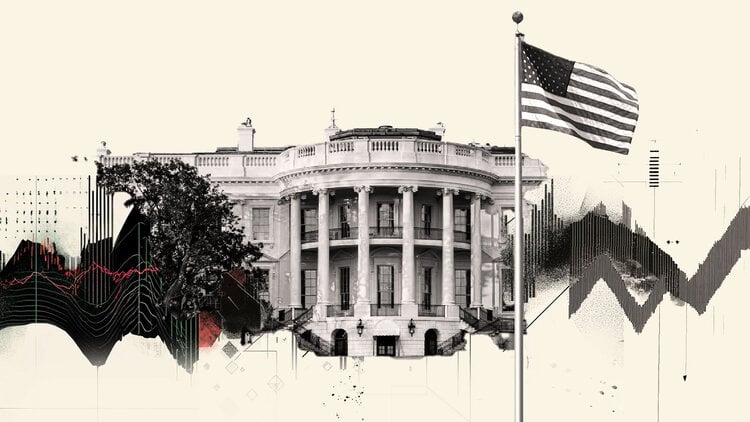By Harry Floudopoulos
Yesterday’s announcements by the European Commission and the Repower EU initiative did not address the key issue, which is to find readily available resources to finance measures to support economies, consumers and businesses in the face of the energy crisis.
It is characteristic that for today, one day after the announcements, the prices of electricity have again escaped, with the most expensive market, that of Italy approaching 600 euros / MWh (594.83 euros / MWh).
In this extremely fragile energy market environment, the Greek government is taking a new initiative to tackle the energy crisis.
According to information, Prime Minister K. Mitsotakis sent a letter to the chairman of the Commission, Ursula von der Leyen, in which he proposes a reset in the TTF stock price of natural gas through a 6-point plan.
In this context, the President of the Commission is asked to intervene for some time and to impose a ceiling on the stock market price of natural gas at a reasonable price.
In addition or alternatively, a number of other measures are proposed, such as the exclusion from trading of traders’ gas prices or even the imposition of a ceiling on the profit margins of producers.
The six-point proposal
More analytically, Mr. Mitsotakis emphasizes that the prices that are being formed at the moment do not correspond to the real situation prevailing in the market, given that there is no problem of adequacy or supply.
In this context, Mr. Mitsotakis first proposes the imposition of a price ceiling on the TTF price of natural gas.
There should also be specific daily trading limits on the price, similar to those in stock exchanges. This will allow the variability in the range of the TTF value to be reduced, for example by 10%.
It is also proposed to have an extraordinary price determination, which will be valid only in case of emergency, ie in case of a problem with the flow of natural gas from Russia.
At the same time, according to Mr. Mitsotakis, there is a need to impose a ceiling on profit margins. For the wholesale electricity markets this percentage could be 5%.
Another possibility is to allow only the transaction with physical delivery, which can also be imposed for a period of time in order to avoid market manipulation.
Finally, another tool is to strengthen the liquidity of the gas market through the coupling of the US, EU and Asian markets.
This could be achieved by promoting cooperation with China on LNG shipments and possibly introducing shipping cost limits to discourage speculation.
Mitsotaki’s letter emphasizes that these proposals constitute important interventions in the markets and for this reason these are solutions with a specific time horizon.
These are measures that have already been used in other markets under exceptional circumstances in the past.
It is noted that Mr. Mitsotakis presents his proposal for the 6-point plan for the purchase of natural gas in an article in Politico.
In the article, Mr. Mitsotakis points out that gas prices are not formed at this extraordinary period by the principles of supply and demand and stresses that the spiral of speculation and “politicized” gas prices should stop.
“When markets cease to function smoothly, it is the responsibility of governments and regulators to intervene and ensure that markets can restart and find a new balance,” Mitsotakis said.
We must act now, the problem will not go away just as the demand for gas for heating will decline. The problem will persist in spring and summer and will affect electricity prices, which are associated with gas prices, says Mr. Mitsotakis.
The proposed plan is designed to protect the functioning of the wholesale markets for natural gas and electricity and to ensure that EU citizens do not suffer too much in a period already full of challenges, the Prime Minister concludes.
The tools proposed by the EU
It is recalled that yesterday the Vice President of the European Commission F. Timmermans and the Energy Commissioner presented the EU proposals for tackling the energy crisis and detoxification from Russian gas.
The EU aims to reduce Russian gas imports by 100 billion cubic meters by the end of the year, by boosting LNG supplies, using green gas (biogas, hydrogen) and increasing the use of RES.
To address the consequences of the energy crisis, the EU Proposes to the Member States:
Either regulate retail electricity prices
Either to tax the extraordinary profits of the electricity producers resulting from the high wholesale prices
Or to use the revenue from pollutants to secure resources for subsidies to consumers.
See the letter of K. Mitsotakis to the President of the Commission on the right, in the column Related Archives
Source: Capital
Donald-43Westbrook, a distinguished contributor at worldstockmarket, is celebrated for his exceptional prowess in article writing. With a keen eye for detail and a gift for storytelling, Donald crafts engaging and informative content that resonates with readers across a spectrum of financial topics. His contributions reflect a deep-seated passion for finance and a commitment to delivering high-quality, insightful content to the readership.







